|
Books Should Be Free Loyal Books Free Public Domain Audiobooks & eBook Downloads |
|
|
Books Should Be Free Loyal Books Free Public Domain Audiobooks & eBook Downloads |
|
Books on Politics |
|---|
|
Book type:
Sort by:
View by:
|
By: Thames Williamson | |
|---|---|
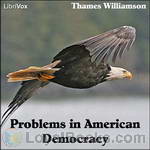 Problems in American Democracy
Problems in American Democracy
Problems in American Democracy is a very detailed, specific explanation of some of the underlying and surface problems of a democracy system of government, particularly of the American form of democracy. Though lengthy, it is a great read for people who want to learn more about different types of government and the foundations of our own government in the United States of America. | |
By: The 9/11 Commission | |
|---|---|
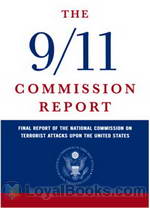 The 9/11 Commission Report
The 9/11 Commission Report
Taking the reader back to the horror and devastation of September 11, 2001, the 9/11 Commission Report by the 9/11 Commission, is the official report that presents the final findings of the committee Krean Hamilton Commission (better known as the 9/11 Commission.) The report reveals not just the events that happened on that fateful day, but also describes the circumstances that led up to it. It analyzes the role of several government agencies in the drama and also pinpoints the lacunae in the system that allowed such events to occur... | |
By: The President's Commission on Immigration and Naturalizatio | |
|---|---|
 Whom We Shall Welcome: Report of the President's Commission on Immigration and Naturalization
Whom We Shall Welcome: Report of the President's Commission on Immigration and Naturalization
In 1952, Congress passed the Immigration and Nationality Act of 1952, which had many provisions objectionable to many Americans. President Truman vetoed it, but it was passed in June 1952 over the President's veto. President Truman established the President's Commission on Immigration and Naturalization [in September 1952]. He directed the Commission "to study and evaluate the immigration and naturalization policies of the United States" and to make recommendations "for such legislative, administrative, or other action as in its opinion may be desirable in the interest of the economy, security, and responsibilities of this country... | |
By: The Venerable Bede (673-735) | |
|---|---|
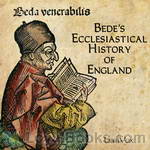 Ecclesiastical History of England
Ecclesiastical History of England
Bede's Ecclesiastical History of England is a work in Latin by Bede on the history of the Christian Churches in England, and of England generally; its main focus is on the conflict between Roman and Celtic Christianity. It is considered to be one of the most important original references on Anglo-Saxon history. It is believed to have been completed in 731, when Bede was approximately 59 years old. Divided into five books, it covers the history of England, ecclesiastical and political, from the time of Julius Caesar to the date of its completion (731)... | |
By: Theodore Roosevelt | |
|---|---|
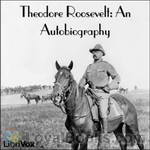 Theodore Roosevelt: An Autobiography
Theodore Roosevelt: An Autobiography
In his vital, illustrative and dynamic autobiography, Theodore Roosevelt let us into the life that formed one of the greatest and outspoken presidents in American history. Not only are we privy to the formation of his political ideals, but also to his love of the frontier and the great outdoors. | |
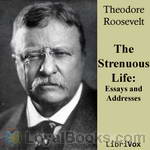 Strenuous Life: Essays and Addresses of Theodore Roosevelt, The
Strenuous Life: Essays and Addresses of Theodore Roosevelt, The
This book is a collection of Theodore Roosevelt’s published commentaries and public addresses on the general theme of the requirements for individual and collective success in the personal, civic, political, and social arenas. (Introduction by Bob Neufeld) | |
 Square Deal
Square Deal
Theodore Roosevelt became the 26th president of the United States when president William McKinley was assassinated in 1901. As the youngest president, Roosevelt advanced the progressive Republican program known as the “Square Deal” focused on conservation of natural resources, control of corporations, and consumer protection. Expanding on this theme, “The matter contained is this book has been carefully prepared from the many addresses by the President, the aim being to bring under each specific head the ideas expressed on many occasions, by Horace Markle.” Topics range from The Farmer to World Peace, and The Essence of Christian Character. - Summary by Larry Wilson | |
By: Thomas Hobbes (1588-1679) | |
|---|---|
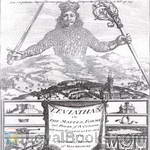 Leviathan, or The Matter, Forme and Power of a Common Wealth Ecclesiasticall and Civil
Leviathan, or The Matter, Forme and Power of a Common Wealth Ecclesiasticall and Civil
Books 1 and 2. Leviathan, or The Matter, Forme and Power of a Common Wealth Ecclesiasticall and Civil is a book written in 1651 by Thomas Hobbes. The book concerns the structure of society (as represented figuratively by the frontispiece, showing the state giant made up of individuals). In the book, Hobbes argues for a social contract and rule by a sovereign. Influenced by the English Civil War, Hobbes wrote that chaos or civil war – situations identified with a state of nature and the famous motto bellum omnium contra omnes (”the war of all against all”) – could only be averted by strong central government... | |
By: Thomas More (1478-1535) | |
|---|---|
 Utopia (Robinson translation)
Utopia (Robinson translation)
Originally entitled A frutefull pleasaunt, and wittie worke of the beste state of publique weale, & of the newe yle, called Utopia: written in Latine, by ... Syr Thomas More knyght, and translated into Englishe by Raphe Robynson ...The first book tells of the traveller Raphael Hythloday, to whom More is introduced in Antwerp. The second book consists of Hythloday's description of the island and people of Utopia, their customs, laws, religions, economy, language and relations with other nations. Hythloday... | |
By: Thomas Paine | |
|---|---|
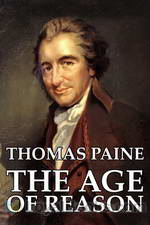 The Age of Reason
The Age of Reason
A Universalist book, The Age of Reason advocates for the existence of natural religion and challenges the structure of all organized religion. First written and distributed as pamphlets, the book was later published into two parts. Paine puts forward his personal beliefs, debating reason and revelation, while analyzing the Bible and the influence organized religion has on society. Exploring topics including natural religion, criticism of corrupt religious institutions, and distinction between rationality and blind faith in the supernatural, the book presents a guide for the conscious and free spiritual thinkers... | |
 Age of Reason (version 2)
Age of Reason (version 2)
The Age of Reason; Being an Investigation of True and Fabulous Theology is a pamphlet, written by a British and American revolutionary Thomas Paine. The Age of Reason challenges institutionalized religion and challenges the legitimacy of the Bible, the central sacred text of Christianity. Published in three parts in 1794, 1795, and 1807, it was a bestseller in the United States, where it caused a short-lived deistic revival. Part 1 was written sometime in 1793, and attacks the concepts of divine revelation and inspiration... | |
By: Tommaso Campanella (1568-1639) | |
|---|---|
 City of the Sun
City of the Sun
A dialogue between a Grandmaster of the Knights Hospitallers and a Genoese Sea-captain, about the latter's voyage to a utopian city. | |
By: United Nations | |
|---|---|
 United Nations Agreements
United Nations Agreements
The Charter of the United Nations signed at San Francisco on 26 June 1945 is the constituent treaty of the United Nations. It is as well one of the constitutional texts of the International Court of Justice which was brought into being by the Charter. This recording contains: UN Charter Statute of the International Criminal Court Millennium Declarations | |
By: United States Arms Control and Disarmament Agency | |
|---|---|
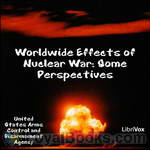 Worldwide Effects of Nuclear War: Some Perspectives
Worldwide Effects of Nuclear War: Some Perspectives
This is a concise yet thorough explanation of what might happen to our world in the aftermath of a nuclear war. The myriad of potential effects will be global and wide-spread, and the potentials are glazed over in this short work. | |
By: United States Federal Bureau of Investigation | |
|---|---|
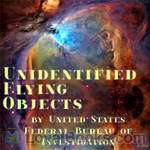 Unidentified Flying Objects
Unidentified Flying Objects
Through the U.S. Freedom of Information Act (FOIA) this series of communications has been de-classified and made public. Most names have been omitted, however much information of the sightings of UFOs in 1947 can be gleaned from these communications which were primarily between the FBI and other U.S. Government and military organizations. | |
By: United States Government | |
|---|---|
 United States Constitution and Amendments
United States Constitution and Amendments
The Constitution is the charter of government and the supreme law of the United States of America. It was signed by delegates to the Constitutional Convention in Philadelphia, Pennsylvania, on September 17, 1787. The first 10 amendments, known as the Bill of Rights, were ratified together in 1791. Amendments 11 through 27 were ratified separately from 1795 through 1992. | |
By: United States of America | |
|---|---|
 Citizen's Almanac - Fundamental Documents, Symbols, and Anthems of the United States
Citizen's Almanac - Fundamental Documents, Symbols, and Anthems of the United States
New citizens of the United States were given this pamphlet when they became citizens. The Citizen's Almanac contains information on the history, people, and events that have brought us where we are today as a beacon of hope and freedom to the world. The Almanac has information on citizens' rights and responsibilities, the history of our anthems, court decisions, as well as other historical documents. - Summary by Craig Campbell | |
By: United States Senate Committee on Armed Services | |
|---|---|
 Report of the Inquiry into the Role and Oversight of Private Security Contractors in Afghanistan
Report of the Inquiry into the Role and Oversight of Private Security Contractors in Afghanistan
The Inquiry into the Role and Oversight of Private Security Contractors in Afghanistan, which reported in September 2010, was precipitated by events in August 2008, when US forces bombed the Afghan village of Azizabad. This gave rise to a public dispute between the US Government and the United Nations about the level of fatalities caused by the attack and about whether those killed had been civilians or Taliban-linked insurgents. Allegations soon emerged that the attack had been based on false information deliberately fed to the US military by Afghan employees of ArmorGroup, a private security contractor, and that these employees were engaged in murder and anti-coalition activities... | |
By: United States Supreme Court | |
|---|---|
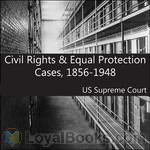 Civil Rights and Equal Protection Cases 1856-1948
Civil Rights and Equal Protection Cases 1856-1948
Landmark United States Supreme Court decisions focusing on civil rights and equal protection between 1856 and 1948. | |
By: Unknown | |
|---|---|
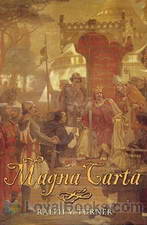 Magna Carta
Magna Carta
The original document is in Latin so this can only be a fairly rough approximation of the actual content. The text used is the first version in the Gutenberg collection. – Magna Carta is the most significant early influence on the long historical process that has led to the rule of constitutional law today. Magna Carta was originally created because of disagreements between the Pope, King John and his English barons over the rights of the King. Magna Carta required the king to renounce certain rights and respect certain legal procedures and to accept that the will of the king could be bound by law. | |
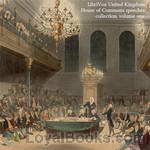 United Kingdom House of Commons Speeches Collection
United Kingdom House of Commons Speeches Collection
This collection comprises recordings of 17 historic speeches given to the UK House of Commons between 1628 and 1956. Readings are of speeches origninally given by parliamentarians including Oliver Cromwell, Edmund Burke, William Wilberforce, William Gladstone, Keir Hardie, Winston Churchill and Aneurin Bevan. | |
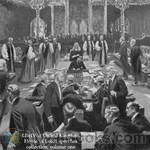 United Kingdom House of Lords Speeches Collection
United Kingdom House of Lords Speeches Collection
This collection comprises recordings of seven historic speeches given to the UK House of Lords between 1641 and 1945. Readings are of speeches origninally given by the 1st Earl of Strafford (Thomas Wentworth), the 1st Earl of Chatham (William Pitt the Elder), the 6th Baron Byron (the poet Lord Byron), the 1st Duke of Wellington (Arthur Wellesley), the 3rd Earl of Lucan (George Lord Bingham) and the 3rd Earl Russell (the philosopher Bertrand Russell). | |
By: Upton Sinclair (1878-1968) | |
|---|---|
 The Profits of Religion
The Profits of Religion
The Profits of Religion: An Essay in Economic Interpretation is a non-fiction book by the American novelist and muckraking journalist Upton Sinclair, first published in 1917. It is a snapshot of the religious movements in the U.S. before its entry into World War I. In this book, Sinclair attacks institutionalized religion as a "source of income to parasites, and the natural ally of every form of oppression and exploitation." | |
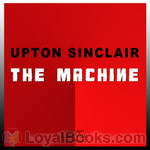 The Machine
The Machine
Upton Sinclair is best known for his novel The Jungle, an expose of the meatpacking industry. He was also a playwright whose works for the stage reflected the same progressive viewpoints found in his other writing. In The Machine, published as part of Sinclair's 1912 collection Plays of Protest, Socialist activists show a rich man's daughter the truth about the society in which she has been raised. | |
By: Various | |
|---|---|
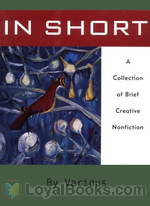 Short Nonfiction Collection
Short Nonfiction Collection
A collection of ten short essays or other short nonfiction works in the public domain. | |
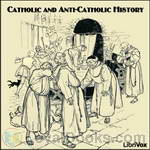 Catholic and Anti-Catholic History
Catholic and Anti-Catholic History
G.K. Chesterton and James Walsh join Hilaire Belloc in an energetic rollout of the means by which history becomes propaganda, to the damage, not only to truth, but to the human soul. | |
 John Stuart Mill; His Life and Works
John Stuart Mill; His Life and Works
This biography is actually a series of essays by prominent personalities of the time that shed light on John Stuart Mill's life and areas of endeavor. Those areas include his experiences in India House, his moral character, certain botanical explorations, how effective he was as a critic, studies in morals and the law, and discoveries concerning political economy. They also explore ideas concerning his influence on institutions of higher learning, accomplishments as a politician, and fame as a philosopher. | |
 Causes Of The American Civil War: Secession Statements Of Five Confederate States (South Carolina, Texas, Virginia, Georgia, Mississippi)
Causes Of The American Civil War: Secession Statements Of Five Confederate States (South Carolina, Texas, Virginia, Georgia, Mississippi)
Some of the states who rebelled against the Federal Government in the American Civil War issued statements by nascent governing bodies explaining why they were attempting to leave. Here are the statements, published in 1860 and 1861, of South Carolina, Texas, Virginia, Mississippi, and Georgia. - Summary by David Wales | |
 Russian Realities and Problems: Lectures delivered at Cambridge in August 1916
Russian Realities and Problems: Lectures delivered at Cambridge in August 1916
This book is a compilation of scholarly lectures by distinguished experts delivered at Cambridge in August 1916. The titles of the lectures reveal the contents of each presentation and include the following: The war and Balkan politics; the representative system in Russia; past and present of Russian economics; Poland, old and new; the nationalities of Russia; and the development of science and learning in Russia. - Summary by Jan Moorehouse | |
 Progressive Woman, Vol. VII, No. 75 (October 1913)
Progressive Woman, Vol. VII, No. 75 (October 1913)
A Monthly Magazine of aspiration devoted to the economic and political interests of women, edited by Josephine Conger-Keneko. - Summary by KevinS | |
 Friends of Ukraine Publications
Friends of Ukraine Publications
A number of publications distributed by the Friends of Ukraine in the period after the First World War when the Ukraine was struggling for its independence. | |
By: Voltairine de Cleyre | |
|---|---|
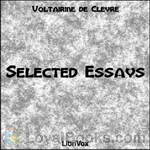 Selected Essays
Selected Essays
Voltairine de Cleyre (1866–1912) was, according to Emma Goldman, “the most gifted and brilliant anarchist woman America ever produced.” Today she is not widely known as a consequence of her short life. De Cleyre was especially influenced by Thomas Paine, Mary Wollstonecraft and Clarence Darrow. After the hanging of the Haymarket protesters in 1887, she became an anarchist. “Till then I believed in the essential justice of the American law of trial by jury,” she wrote in an autobiographical essay, “After that I never could”... | |